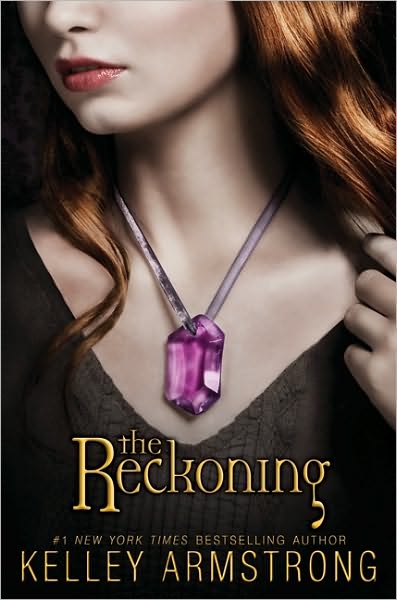The Reckoning, by Kelley Armstrong
Apr 12
2010

Kelley Armstrong is one of those authors whose work I rarely think about unless one of her books is right in front of me. I like her novels, but they just don't stick in my brain—at least, they haven't in the past, but the recently-finished Darkest Powers trilogy (her first series for young adults) may have changed that.
2008's The Summoning, 2009's The Awakening, and the just-released The Reckoning all center around Chloe Saunders, a fifteen-year-old girl whose family thinks she's crazy. Sure, she seems sane enough, but do sane girls claim to see ghosts? Chloe is sent to Lyle House, a group home for mentally ill teens. She promptly starts fretting over her social status amongst her fellow inmates, but when she meets the ghost of one of Lyle House's patients and discovers that her new “doctors” are less interested in her health than her potential powers, she realizes she has bigger fish to fry.
Armstrong is capable of creating nuanced characters, but I have frequently found it hard to care about the ins and outs of her fantasy universe. (Plus, her cover art is usually terrible—like, distractingly bad.) Happily, the Darkest Powers books simultaneously play to her strengths and tone down her weaknesses: her characters are still multifaceted, but her writing for young adults is sharper, more coherent, and even a touch sexier—everything stays well below a PG-13 rating, but she doesn't distract from her romantic plotline with hundreds of pages of supernatural politics. The combination is delightfully creepy, far more memorable than her previous books, and has us eagerly looking forward to her next YA release.
2008's The Summoning, 2009's The Awakening, and the just-released The Reckoning all center around Chloe Saunders, a fifteen-year-old girl whose family thinks she's crazy. Sure, she seems sane enough, but do sane girls claim to see ghosts? Chloe is sent to Lyle House, a group home for mentally ill teens. She promptly starts fretting over her social status amongst her fellow inmates, but when she meets the ghost of one of Lyle House's patients and discovers that her new “doctors” are less interested in her health than her potential powers, she realizes she has bigger fish to fry.
Armstrong is capable of creating nuanced characters, but I have frequently found it hard to care about the ins and outs of her fantasy universe. (Plus, her cover art is usually terrible—like, distractingly bad.) Happily, the Darkest Powers books simultaneously play to her strengths and tone down her weaknesses: her characters are still multifaceted, but her writing for young adults is sharper, more coherent, and even a touch sexier—everything stays well below a PG-13 rating, but she doesn't distract from her romantic plotline with hundreds of pages of supernatural politics. The combination is delightfully creepy, far more memorable than her previous books, and has us eagerly looking forward to her next YA release.
Posted by: Julianka
No new comments are allowed on this post.
Comments
No comments yet. Be the first!